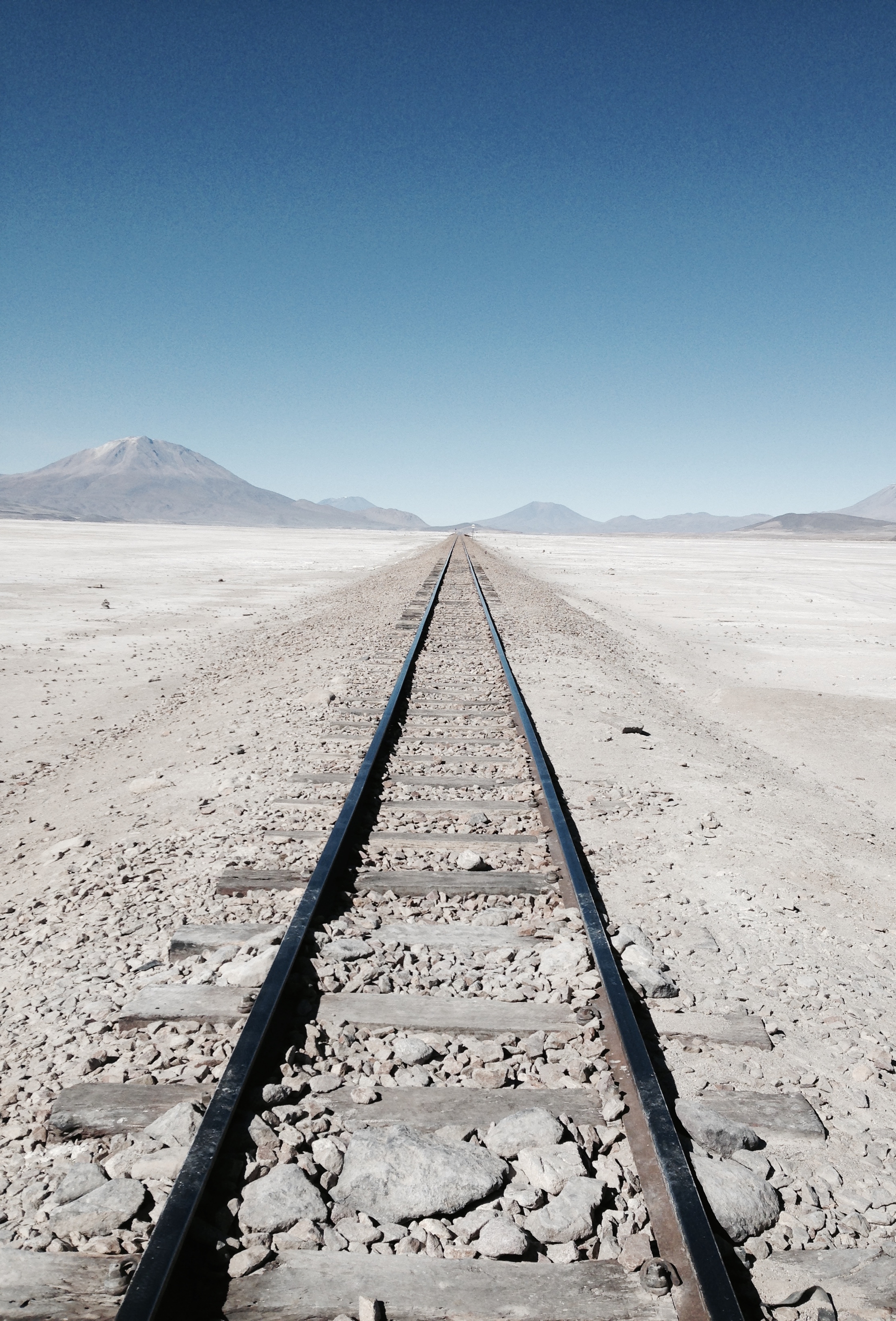Salar de Uyuni, Bolivia. 2015. photo, my own.
Too often, theological construction appears to emanate from no place, asserting an objectivity that only the most privileged among us can claim. My work aims to make present the particular places where lo cotidiano, or daily living, unfolds, and to acknowledge the particular bodies of those who live it, engaging head, heart, and hands in the process. As a theologian, I feel called to honor the stories of Catholics on the ground as the theological source they are.
I took the above photo in Salar de Uyuni, the largest salt flat on the planet, near Bolivia's border with Chile. My literal journey back to Bolivia was a generative moment during my formation as a person of faith, a lay ecclesial minister, and a theologian. The time I spent there not only deepened my connection to my family’s roots, but also awakened me anew to the abiding inequities that mark the world where we live. Listening to the stories of women who were imprisoned on the outskirts of Cochabamba and immersing myself in the language and the culture of my grandparents, I was re-introduced to the intersecting oppressions that aim to divide us from one another. Being reminded of the recent history of the Water Wars, taking to heart the wisdom of those whom racism affects most acutely, watching the spread of homophobia, learning how domestic violence and feminicide take the lives of so many Bolivian women and girls, witnessing the devastation that unbridled greed leaves in its wake, I was sensitized anew to our collective need for liberation from what binds us. These oppressive realities were unmistakably familiar, and I continue to become acquainted with their US American roots and branches as I make my way as a theologian here in the States. Where is God in the midst of these struggles? What should church look like in these contexts? How can we be faithful in response?
Let's walk and think and pray together. Let's be rooted but not exclusive, bridging our respective paths on this journey toward liberation. Let's be curious about the possibilities that come from bringing our heads, our hearts, and our hands together. Let's be creative together in our attempts to enflesh in the here and now the Kin-dom of God. Let's build a new world in the shell of the old.
Jennifer Owens-Jofré, PhD, serves as an Assistant Professor in the Theological Studies Department at Loyola Marymount University in Los Angeles. Her dissertation, based on her fieldwork with lay Latina women leaders at Dolores Mission Parish, is in revision. Dr. Owens-Jofré is a Catholic theologian and lay ecclesial minister whose academic writing has appeared in the International Journal of Practical Theology, Journal of Hispanic/Latino Theology, Perspectivas, Journal of Feminist Studies in Religion, and the Anglican Theological Review. She co-edited From the Pews in the Back: Young Women and Catholicism (Liturgical Press, 2009) with Kate Dugan, and more of her popular pieces can be found at Commonweal, the Political Theology Network, and America. An alumnus of the Graduate Theological Union, Harvard Divinity School, and Loyola Marymount University, Dr. Owens-Jofré has been awarded grants in support of her teaching from the Louisville Institute and her research from the Markkula Center for Applied Ethics at Santa Clara University, the Forum for Theological Exploration, and the Hispanic Theological Initiative. Her current research focuses on the voices of Latina women as a theological source, the implications of grounded theory for mujerista theology, how mujerista theology can inform practical theological method, and theologies of accompaniment. Drawing on ministry experience in Catholic communities across the United States, she also teaches in parish settings and offers professional development workshops for those in ministry, especially for those who would like to develop cultural competency skills for Hispanic ministry or work with young adults. To contact her, click here.
